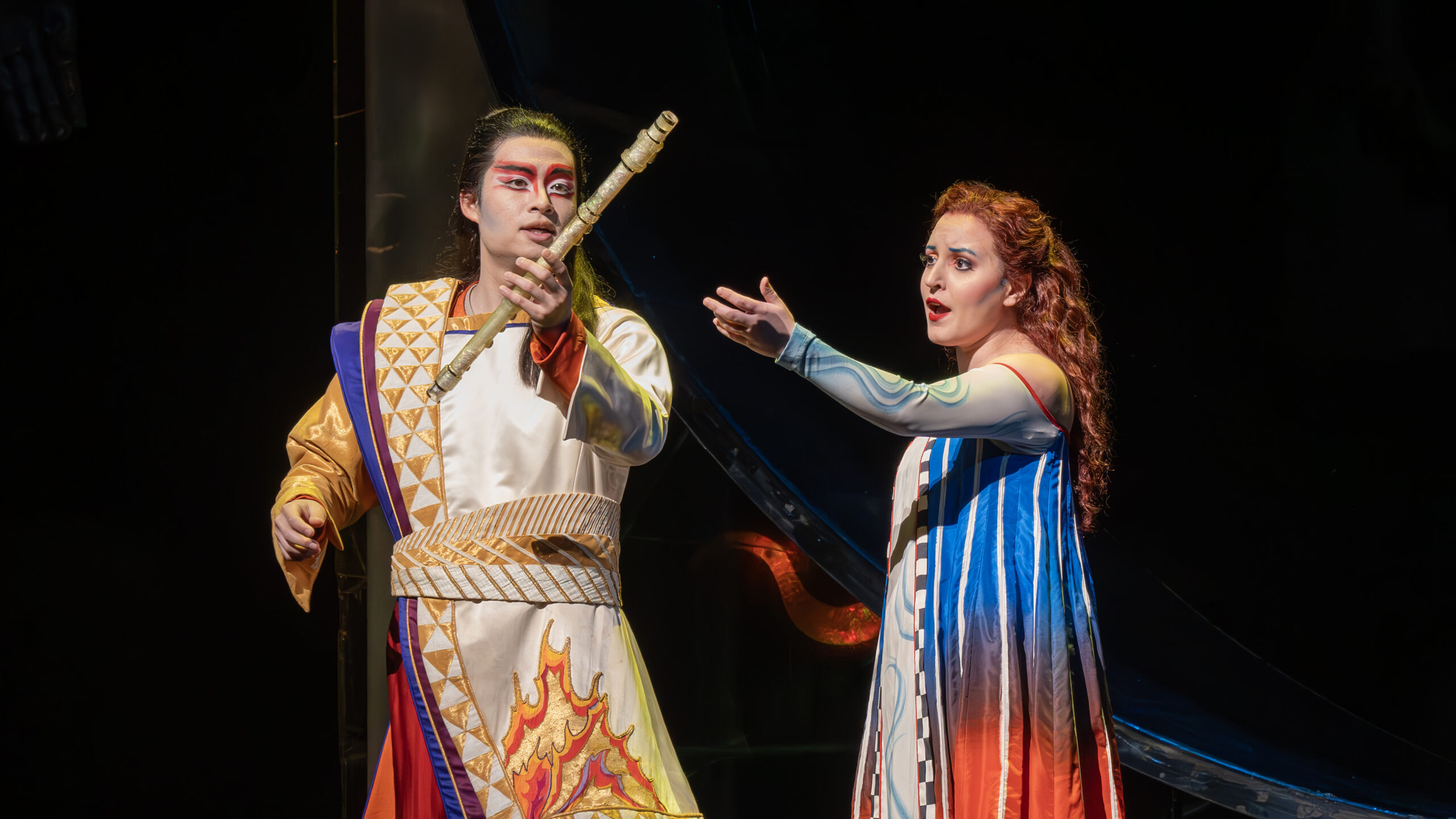
Of Thee I Sing is the one you’ve heard of—it was the first musical to win a Pulitzer. Odyssey Opera gave that one and Let ‘em Eat Cake in Boston last weekend.
In Strike Up the Band, a Wisconsin cheese magnate nags the U.S. government to impose a fifty percent tariff on imports. This leads Switzerland to dispatch Notes, the kind that inspire both music and a declaration of war.
We’re in a bigger, better war
for your patriotic pastime;
We don’t know what we’re fighting for —
But we didn’t know the last time!
That quatrain dates from 1927, when Americans were puzzled by the world war lately ended. It was removed, naturally, for a 1942 revival, public events having caught it up. But in 2024, it’s back in place. And why not? It seems eminently suitable to every martial stumble of American foreign policy of the last sixty years, and its revival at Carnegie Hall on Tuesday night by the MasterVoices Orchestra and Chorus seems … timely, if not (one hopes) prescient.
A legion of spies is dispatched to watch the seaports of Switzerland for all the angles, especially the triangle arising between the cheese magnate’s daughter and two rival suitors. And someone has been impurifying Wisconsin’s milk. But who? Probably the guy we distrust anyway because he’s wearing a Swiss watch and has spoken out against war—all war. Or is it the telephone repairman who has been promoted to general? (On which side? Does it matter?) Or is it the rich widow in furs who has propositioned a White House aide?
None of these folks, you’ll be delighted to hear, is of the slightest depth or importance. That’s how they wrote musicals back in the 1920s, especially the ones with a touch of political satire. The romantic couple sang “The Man I Love;” the comic couple sang “If I Became the President;” the dancing couple tapped up a storm to “Hangin’ Around with You” and everyone sang “Strike Up the Band,” though the goofy plot made us wait an hour and a half for it. In the original production, somebody sang “Soon,” but that, appropriately, was omitted last night. (Perhaps it turned up in Little Night Music.) I was thrilled that my hometown, New Rochelle, commemorated in musicals by George M. Cohan, Frank Loesser, Stephen Sondheim, and Stephen Flaherty and Lynn Ahrens inspired the Gershwins to “Mademoiselle in New Rochelle,” and Christopher Fitzgerald, the funniest man in New York, got to sing it.
Carnegie Hall is a bit sizable for a Broadway show with lyrics that ought to be clear, but surtitles and excessive miking took care of that. But these shows came through loud and clear without electronics in much smaller theaters when they were written, and I wish they could be done that way in revival.
MasterVoices gave it what might be called the Encores! treatment: chorus arrayed on bleachers behind a large orchestra (the orchestrations were attributed in the program to seven different gents), singers performed (mic’ed) on book, and Alison Solomon’s choreography kept lively what should be lively in the narrow stage apron space. No one believes me, but dancers and singers and actors in all branches of theatrical art used to perform all over the stage, from the front to the rear, on top of props, and in front of “in one” mini-sets, but now they are in your face all the time and amplified up to and beyond comfort level. It’s that way at the opera as well. Can any of these singers project? No way to be sure.
The romantic leads were Bryce Pinkham, a pleasing light baritone for “Hoping that Someday You’d Care,” matched byShereen Ahmed’s rather lofty soprano. John Ellison Conlee got to pontificate as the cheese magnate, but met his match and then some in the operatic warbles that—where has she been hiding them?— Victoria Clark brought to Mrs. Draper, the amorous dowager. She in turn was partnered, gallantly, by David Pittu as Col. Holmes, the president’s all-too-discreet advisor, probably intended as a send-up of Woodrow Wilson’s Col. House, back when anyone remembered Col. House or, for that matter, Woodrow Wilson.
Lissa deGuzman and Philip Artmore suited witty movements to the interludes (I think the technical term is “dialogue”) between their even wittier dance breaks. In an actual staging of this material, I suspect Messers Conlee and Pittu and Claybourne Elder as the conniving rejected suitor would all have been encouraged to rival Mr. Fitzgerald with horseplay, verbal and visible, but that consumes time, and the jokes were not really sharp enough to justify it.
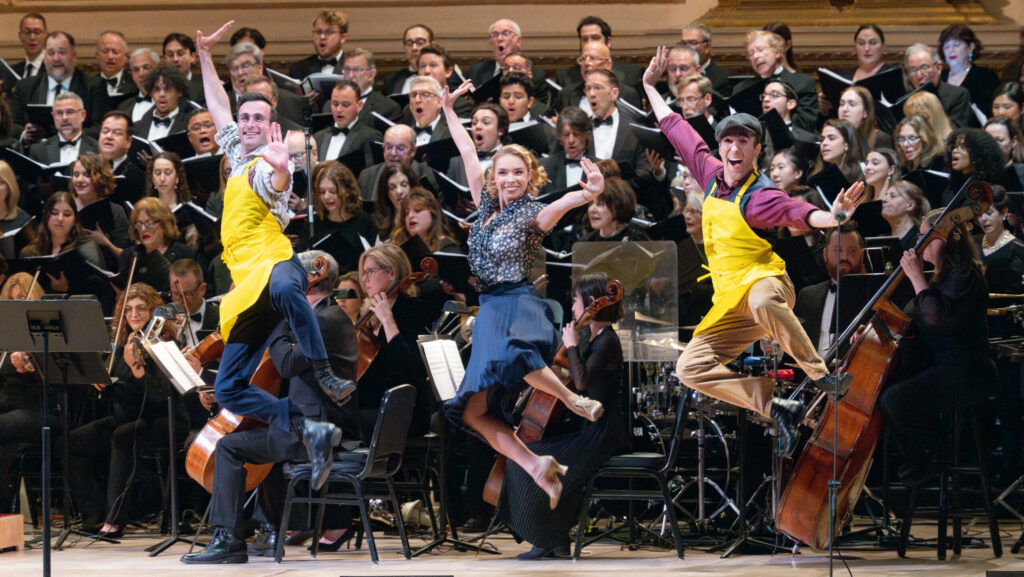
Another critic, sitting in front of me, informed me that one version of the show replaced the cheese war with a conflict over Swiss chocolate—does that suggest a venue change from Hooray, Wisconsin to Hershey, Pennsylvania?—but I was just as glad to escape it. The show all hands came up with was fast-moving if not exactly taut. If we’d had time to think about it, we’d have been puzzled by some red herrings in the plot, so it’s just as well we didn’t have time to think about it. The lyrics of the unfamiliar songs (all of them seemed to have verses—remember when songs in musicals had verses? How long has it been?) did not strike me as likely to enhance Ira Gershwin’s reputation (at one point he rhymes “far afield” with “Gar-a-field”), but George’s tunes are always welcome and generally danceable.
MasterVoices’ Ted Sperling led all the musical forces and even, on occasion, delivered plot-defining telegrams. It was a lively, brightly polished occasion, and reduced some of the tension with which we anticipate the Guy Fawkes’s Day shenanigans.
Photos: Toby Tenenbaum
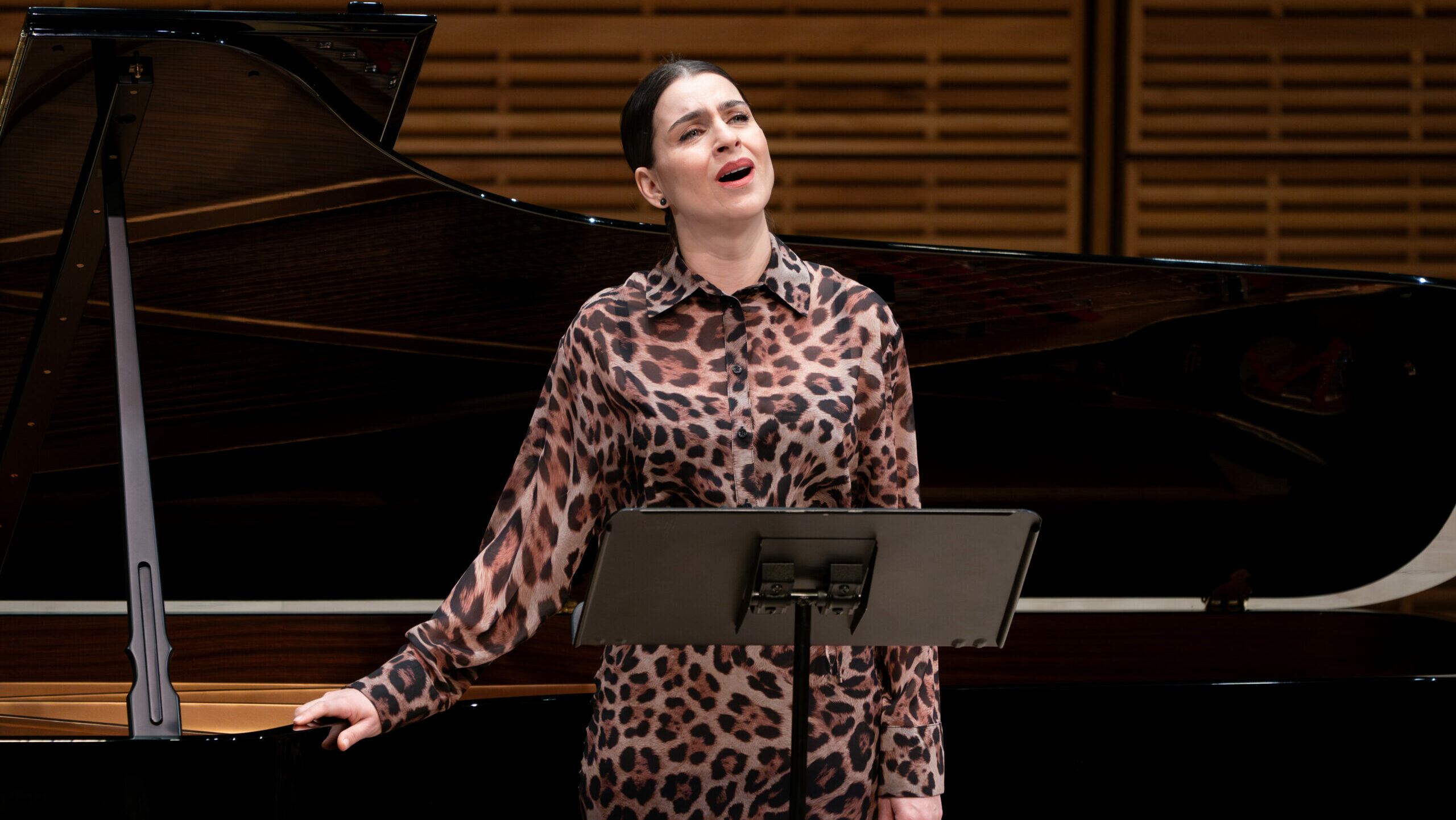
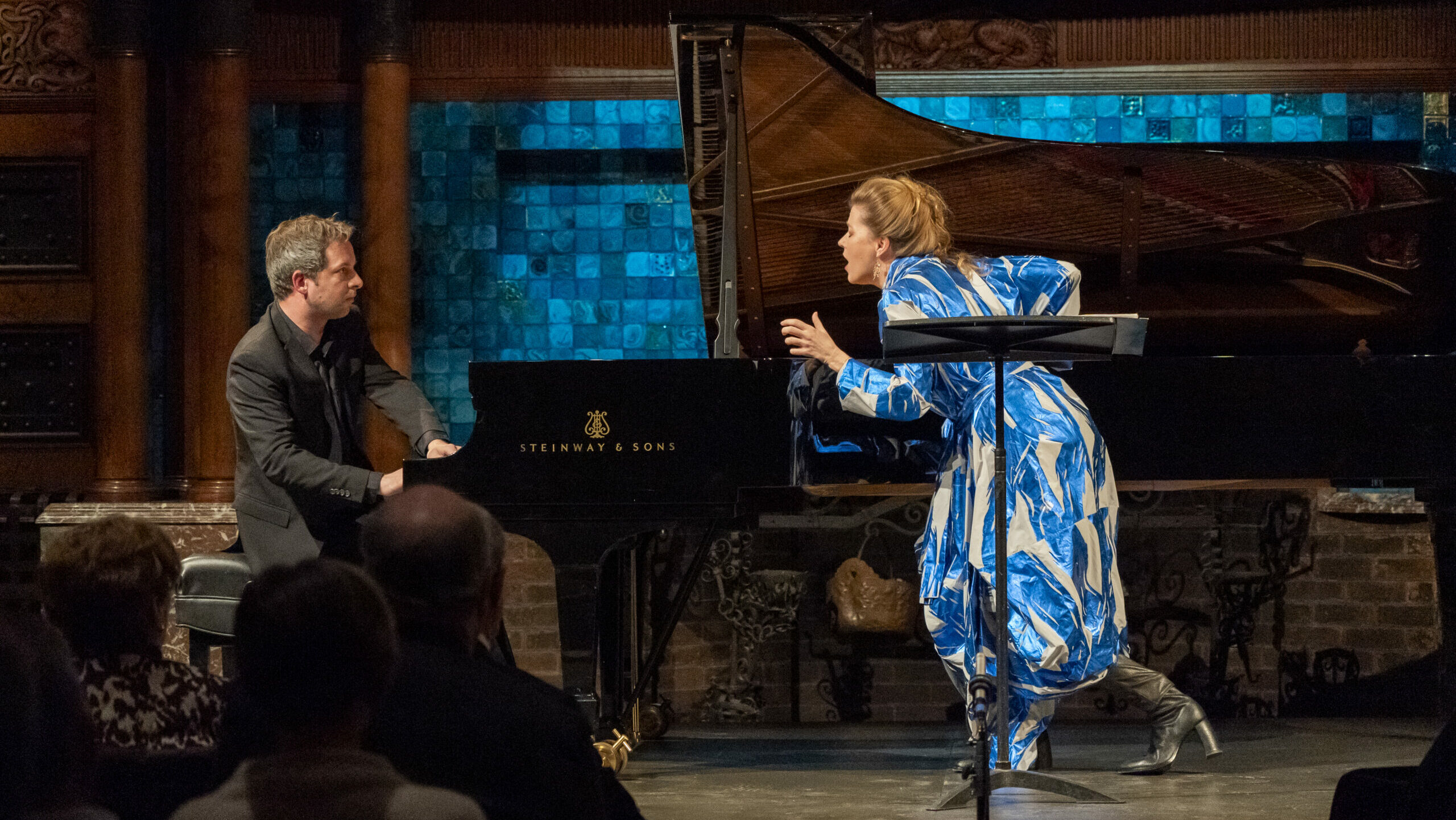

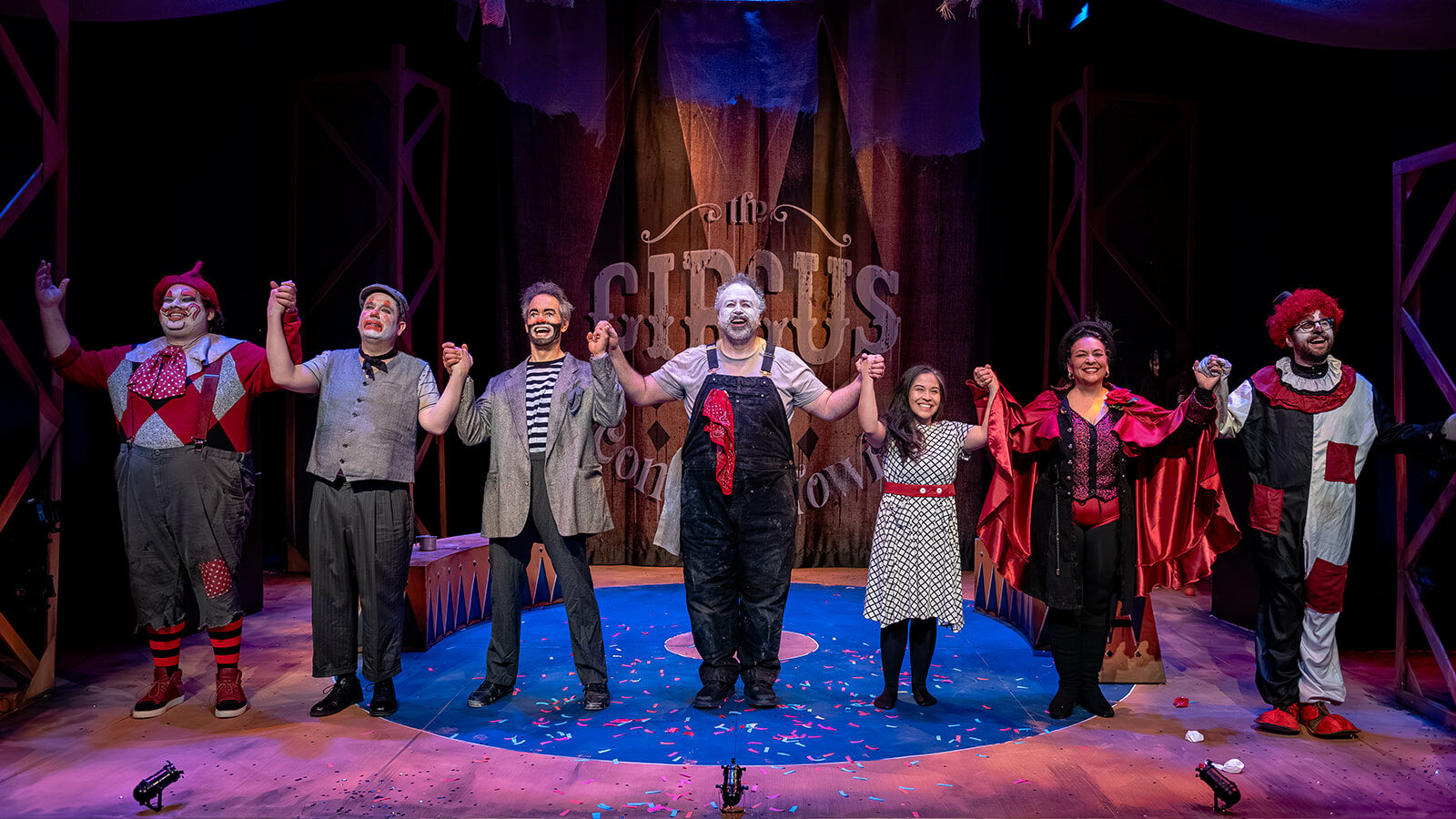




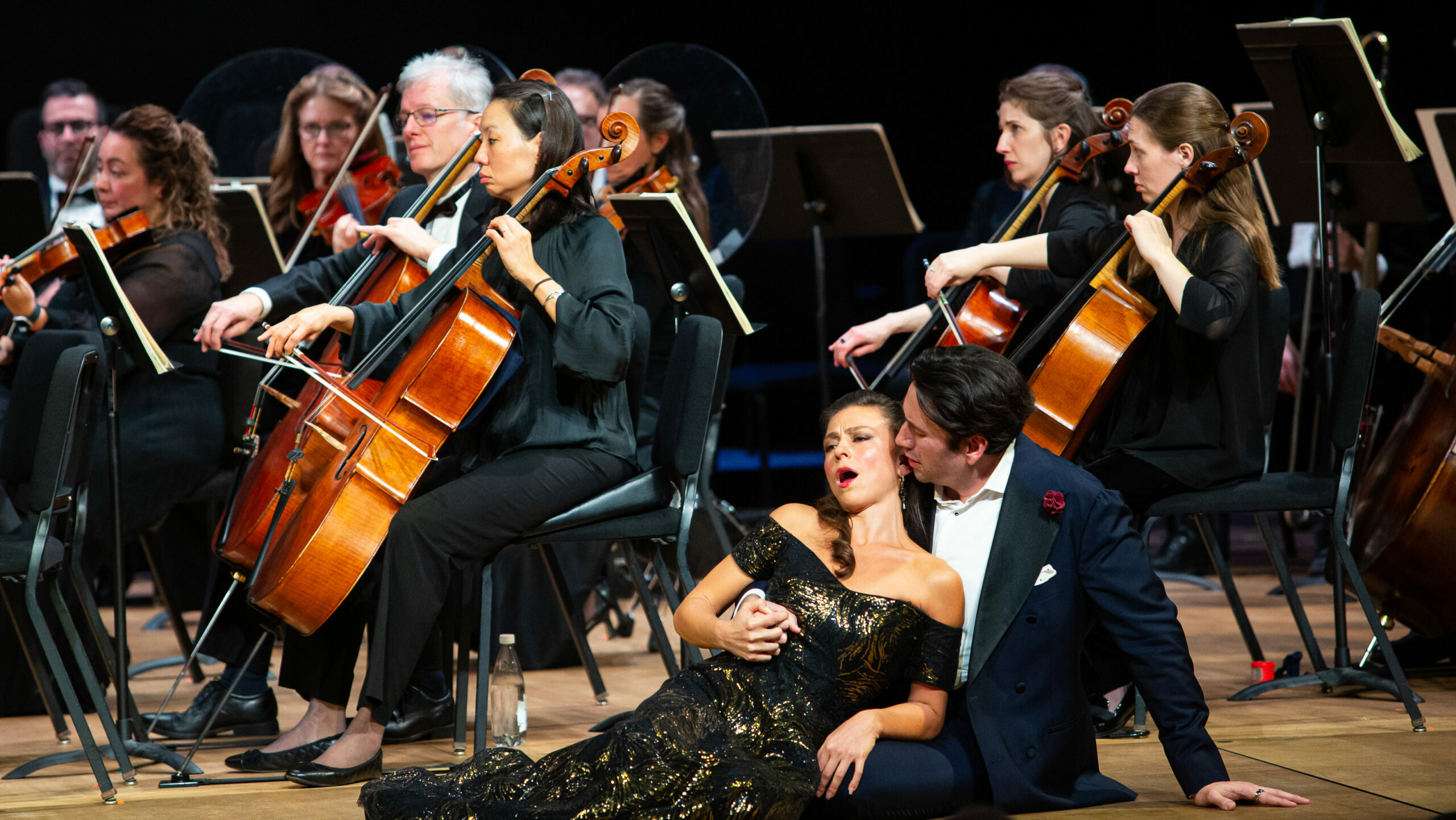
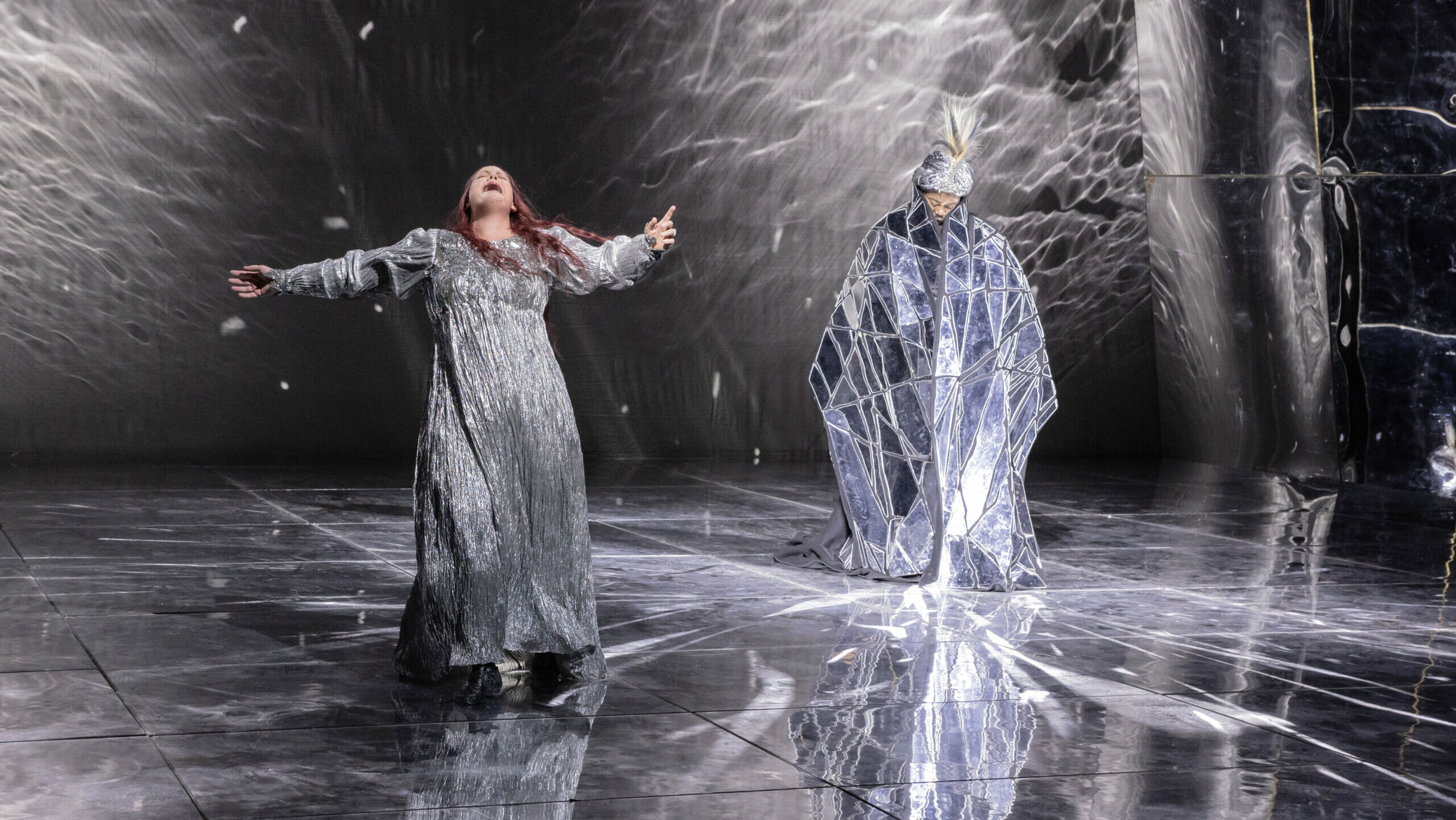
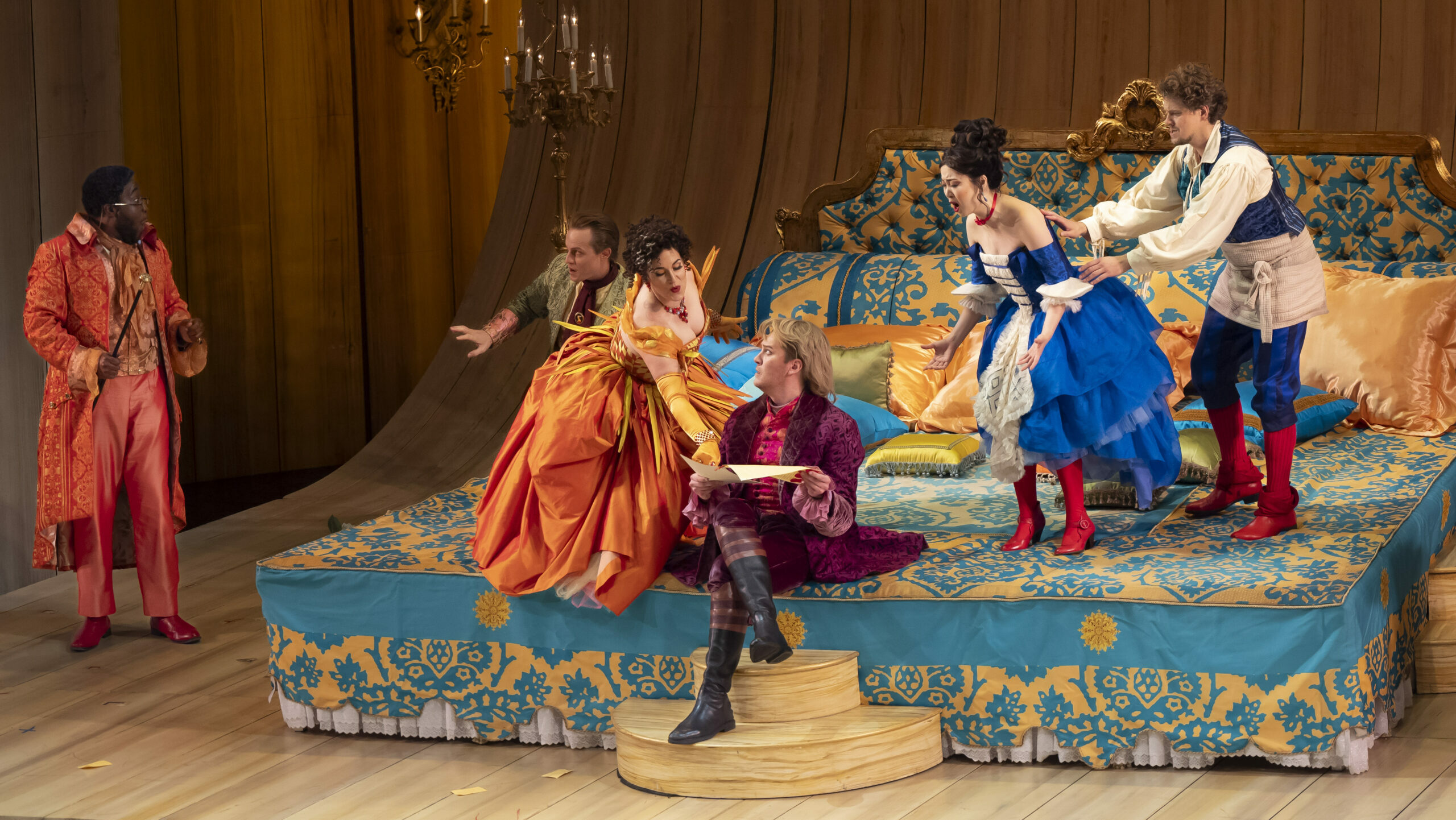
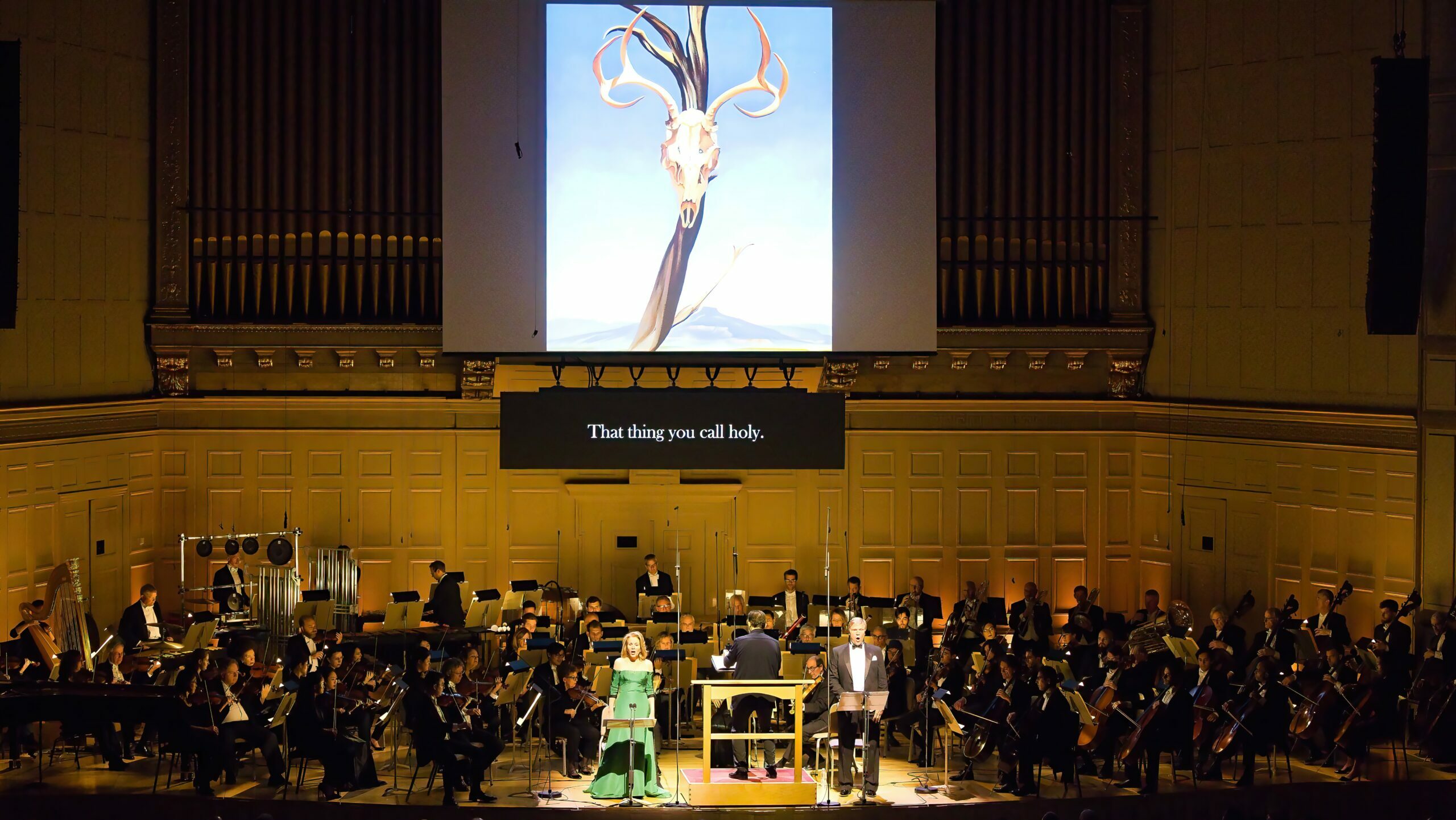
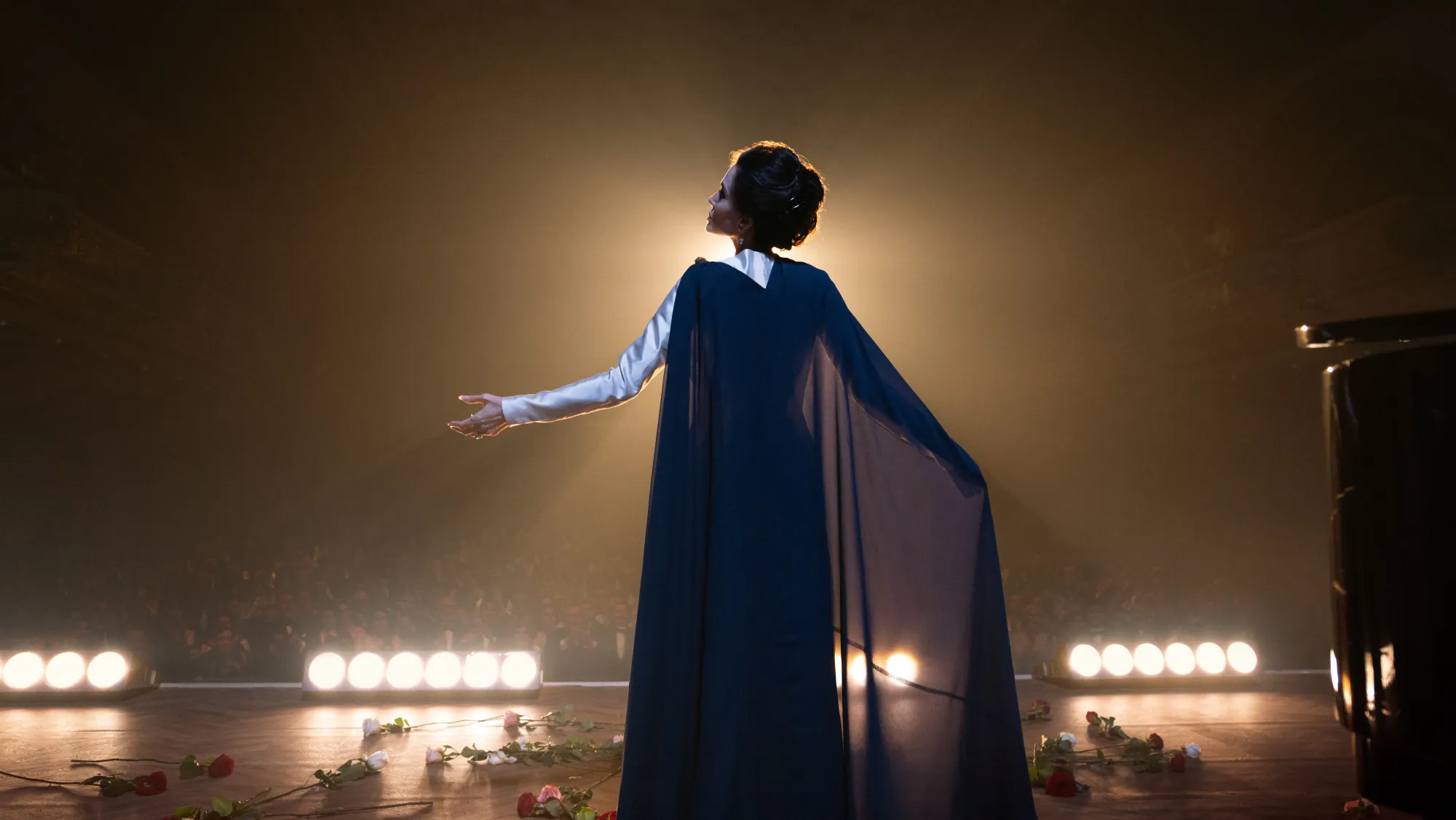
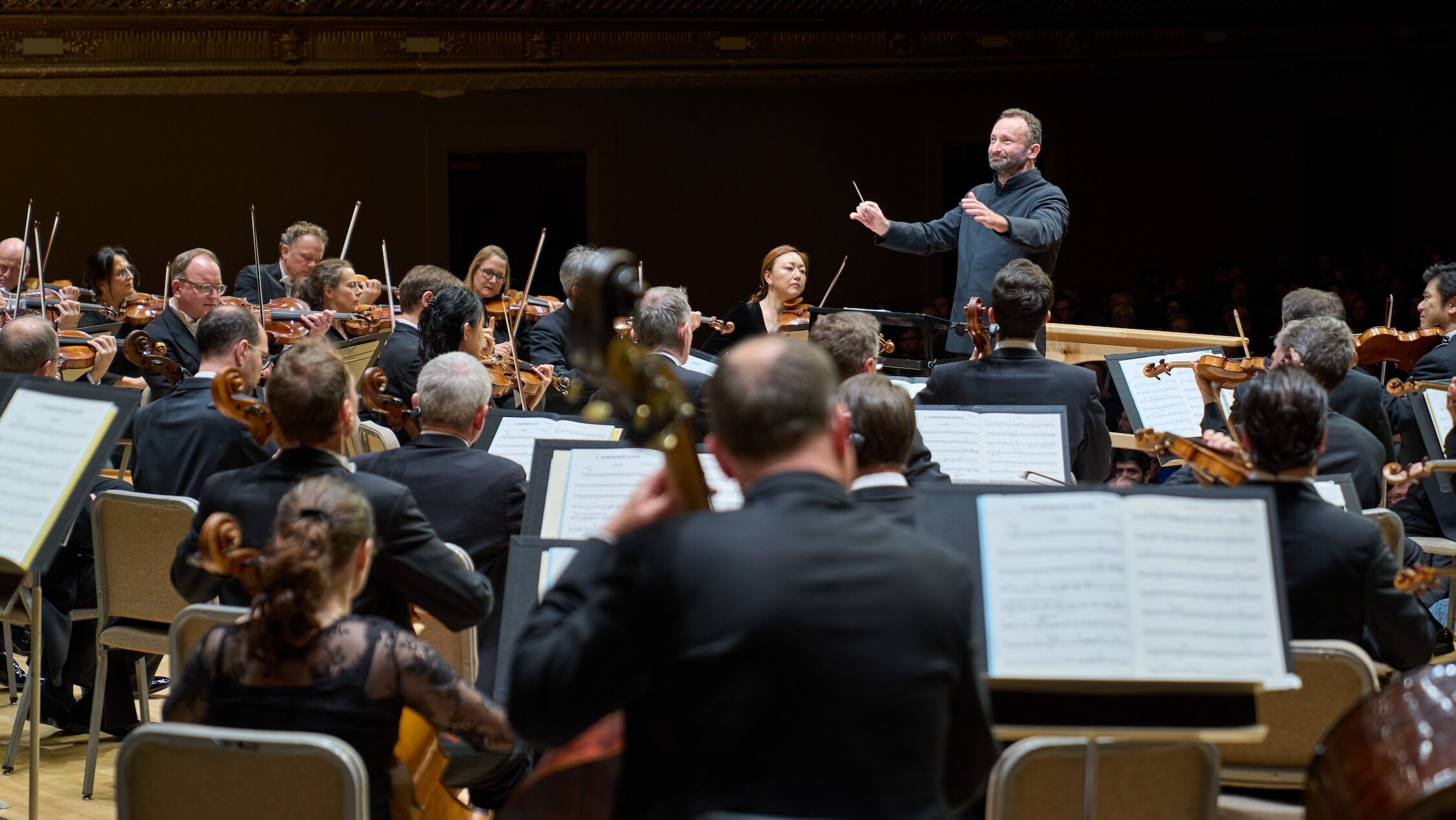
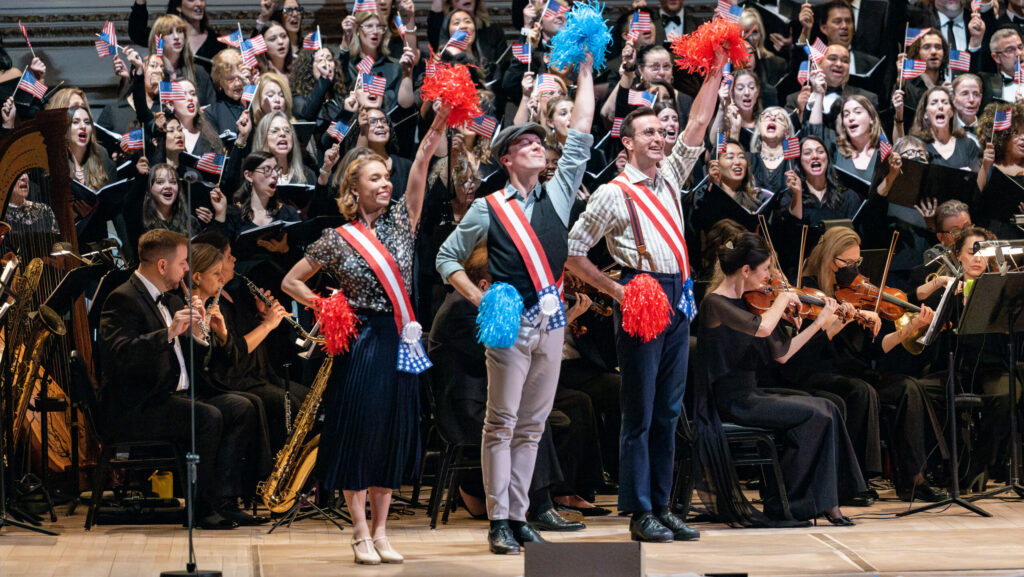
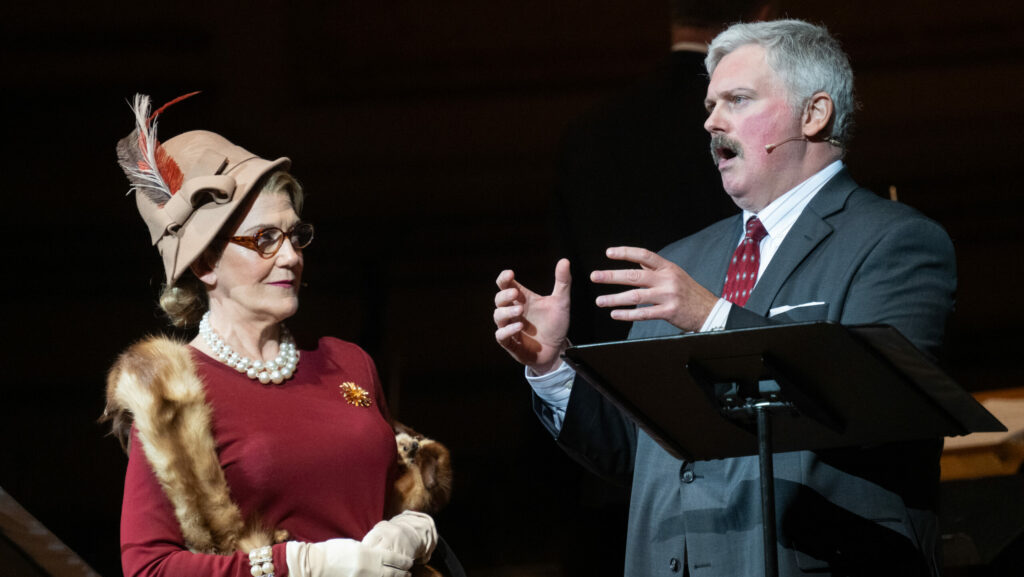
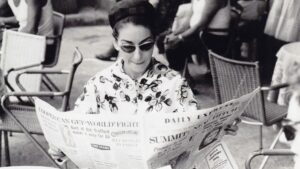
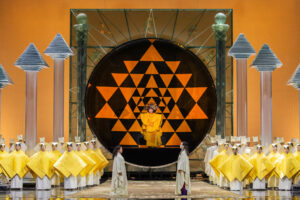
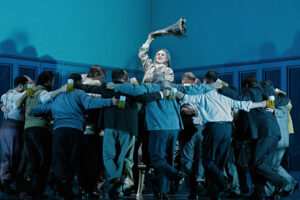

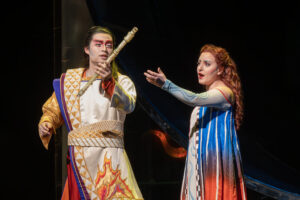

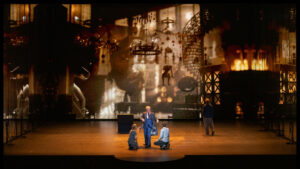
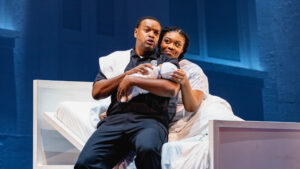



Comments